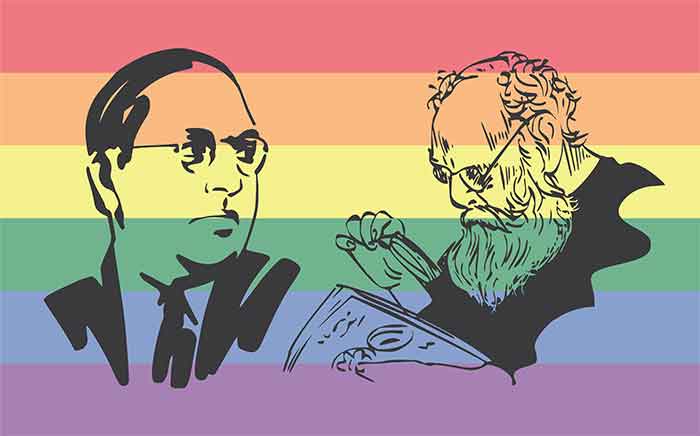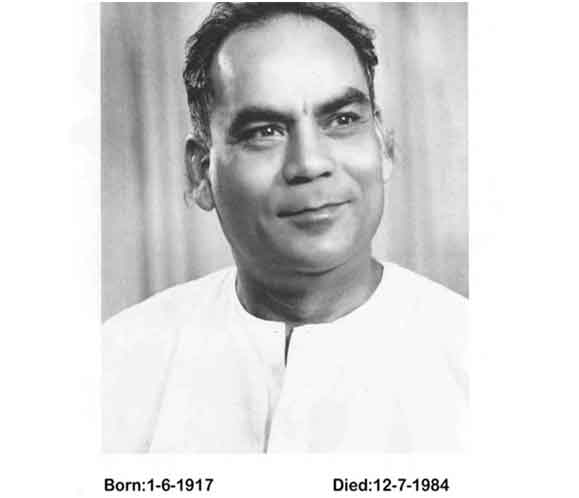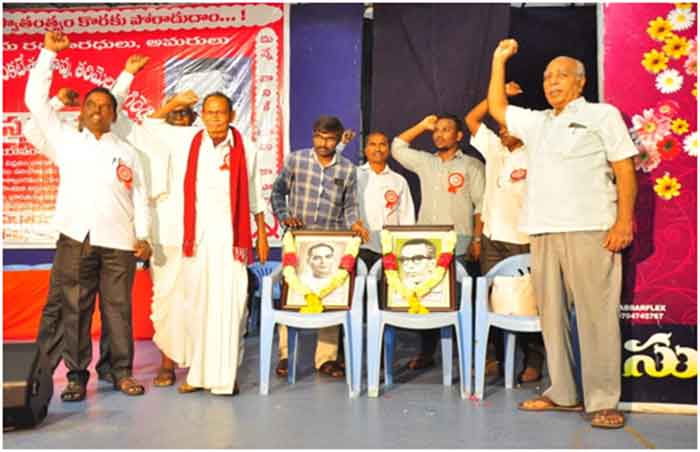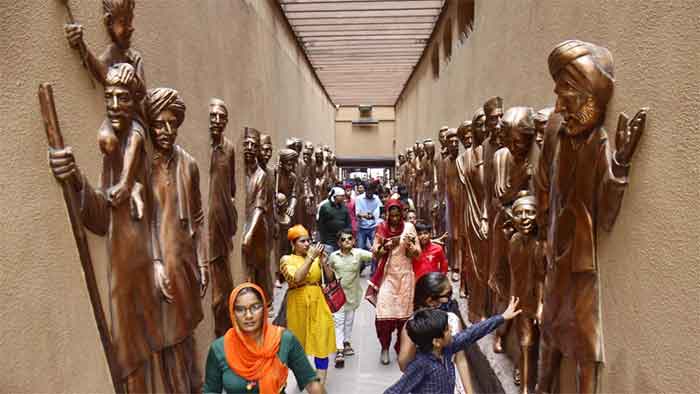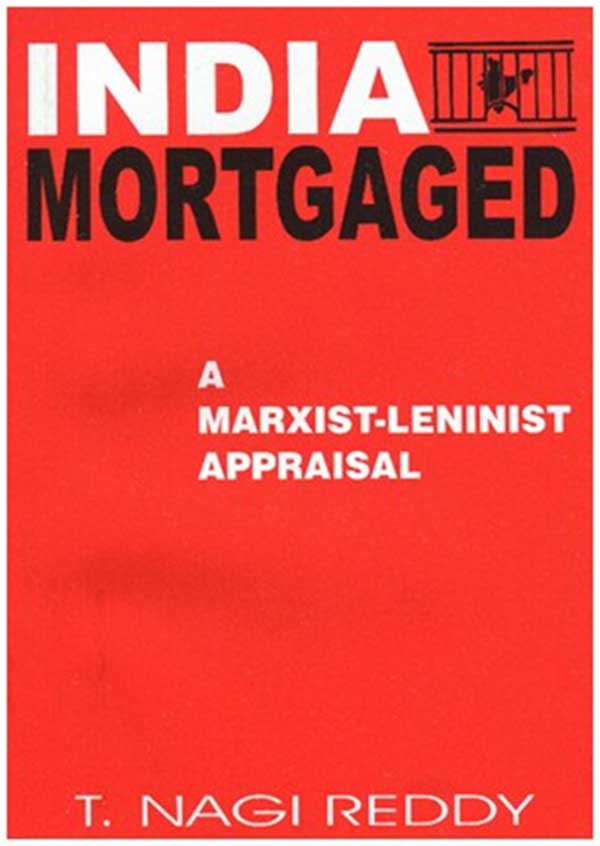
(The following is an extract from chapter one of 1NDIA MORTGAGED by Tarimela Nagi Reddy ,pages 2-8, 1971. It narrates how transfer of power took place and it was not real independence.)
For any Marxist, such a betrayal by the bourgeoisie is no surprise. As early as in 1905, Lenin had pointed out that the bourgeoisie, in this epoch of imperialism and Proletarian Revolutions, cannot and will not fulfill the tasks of the completion of the Democratic Revolution.
He said: “the Bourgeois Revolution is precisely an Upheaval that most resolutely sweeps Survivals of the past, Survivals of the serf-owning system “. But Lenin clearly pointed out that the “bourgeoisie betrays its own self and that, “the bourgeoisie is incapable of being consistently democratic”.
“It is of greater advantage to the bourgeoisie for the necessary changes in the direction of Bourgeois Democracy to take place more slowly, more gradually, more cautiously, less resolutely, by means of reforms and not by means of a Revolution”.
(“Two Tactics of Social Democracy”, Page 77)
Why is the Bourgeoisie afraid of Bourgeois Revolution? Why is it against clearing the ground of the Survivals of the past? Why does the bourgeoisie want to spare the venerable institution of the serf-owning system as much as possible? Because the bourgeoisie is afraid that the peasantry and the workers might change the rifles from one shoulder to the other and march on further to the abolition of bourgeois property itself on the very ground of the serf-owning system.
Therefore, he had warned that the bourgeoisie will come to a “wretched deal” and that they are incapable of gaining a “decisive” victory, rather “they do not even want a decisive victory.” “They stand in too great a need ofTsarism, with its bureaucratic, police, and military forces for use against the proletariat, and the peasantry, to want it to be destroyed. ” (Lenin, “Selected Works”, Page 81) For this reason, “the bourgeoisie will inevitably turn towards counter-revolution, towards the autocracy, against the revolution, and against the people as soon as itsnarrow, selfish interests are met, as soon as it recoils from consistent democracy.” (Page 115)
“That is why the bourgeoisie is incapable of carrying throughthe Democratic Revolution to its consummation.” (Page 116)
This brilliant thesis of Lenin, of the bourgeoisie betraying itselfhas been so characteristically proved by the Indian bourgeoisie and its political arm, the Indian National Congress, that the Commander of itsGeneral Staff, the “Mahatma” and his associates proved themselves to be the greatest and surest friends of imperialism, feudalism and the big bourgeoisie. It is no wonder that Gunnar Myrdal in his “Asian Drama” remarks that “the British had good reason to be grateful for Gandhi’s policy of non-violence” (Page 143), since “After independence the close relations with the former metropolitan countries were preserved and in some respects intensified “(Page 125)
Indian Bourgeoisie’s Despicable Betrayal:
How did this transfer of power take place between the colonial administration and the Indian bourgeoisie? What were the factors that led to this “peaceful transfer” ?What were the factors that led the British to be grateful to Gandhi and his associates? What is the significance of this transfer of power to the Indian people? These are some of the questions that will have to be gone into by us to understand the (Hyderabad Conspiracy) case in which I am involved.
The end of the Second World War, instead of mitigating the general crisis of Capitalism, intensified all its features at the end of the War. The smashing of Fascism, the historic role played by the Soviet Union under the leadership of Stalin in forcing defeat upon Fascism, and the impending victory of the advancing Chinese Revolution under the leadership of Mao Tse Tung_and the Chinese Communist Party provided the decisive impulse which set in motion a movement of emancipation from colonial rule all over South Asia and beyond it into West Asia and Africa. The decline in power and prestige of the victorious imperialist states, especially of Britain and France, and the rise of the proletarian state, the Soviet Union, as an international force to be reckoned with, immensely advanced the revolutionary potentialities of the liberation movements in all colonies.
It was under such a historical international set-up, that the post-Second World War situation witnessed a mounting mass upsurge of millions of people in India, militant demonstrations in protest against the trial of INA soldiers; the glorious revolt of the ranks of the Royal Indian Navy which forged the militant unity of all classes, castes, and communities; the open rumblings of revolt in the Army and the Air Force– all these revealed the growing maturity of the liberation movement in India. The proletariat was on its feet all over the country, and immense political strikes were the order of the day. The mass of the people in theIndian princely states were on the march, especially the peasants against feudal exploitation. Thus, for the first time in India, the movement swept forward not only among the civilian population but also amongst the armed forces.
The British authorities were unnerved, and the Indian bourgeois leadership was flabbergasted. The twins met to disrupt and destroy the unity of the mass of people and the armed forces which was developing into an explosive force to sweep away the hundred-year-old imperialism and age-old feudal serfdom. It was the signal of a new era in India. It revealed the disintegration of British authority at the very basis and in the machinery of its power. The Indian bourgeoisie, fearful of the consequences of this unforeseen popular upheaval, hastened towards betrayal.
On 2Ist February, 1946, When the Indian soldiers refused to fire on the revolting Navy, British troops were called in and Admiral Godfrey broadcast his ultimatum that the “overwhelming forces at the disposal ofthe Government will be used to the utmosteven if it means destructionof the Navy.” Vallabhai Patel, the strong-man of the Congress, denounced the Naval ratings and endorsed the remarks of the Commander-in-Chief that there “ought to be discipline in the Navy”. Maulana Azad, the Congress President during this period of the final betrayal of the liberation struggle, declared that, “strikes, hartals and defiance of authority of the day are out of place.” And Mahatma Gandhi struck the last nail when he condemned the Hindu-Muslim unity of this great uprising and the universal militant support of the masses as an “unholy alliance”. “That would have delivered India over to the rabble. I would not want to live up to 125 years to witness that consummation. I would rather perish in the flames.” Arevealing statement indeed, “betraying the fear of the upper classes of the growing revolutionary actions of various sections of the masses.
It is clear that the bourgeoisie did not want a decisive victory against imperialism. It is also clear that the bourgeoisie is incapable of carrying through the Democratic, anti-imperialist Revolution to its consummation. They are in too great a need of bureaucratic administration, its police and military forces built up by British imperialism in the course of its rule of 100 years and more, for use against the “rabble” – the proletariat and the peasantry. They certainly did not want this machine to be destroyed.
Thus the ball of despicable compromise with imperialism was set in motion. The final betrayal was the order of the day.
In the same manner that the Indian bourgeoisie was afraid of the revolutionary forces, so was imperialism afraid of its total extinction. Imperialism understood that it cannot control the Indian situation by force. According to Lt. General Sir France Tuker, the G.O.C., Eastern Command in India at the time, war-weary Britain, financially broken, could not stand the increase of substantial British forces in India to enforce British authority in a country aflame with revolt. He writes: “ultimately we found that this garrison commitment was more than the industrial needs our impoverished country could stand. That was another strong reason for our leaving India and leaving it quickly”. (“While Memory Serves”, Page 518). Sir Stafford Cripps, one of the main architects of the compromise for transfer of power told the British Parliament that to hold India, “an expanded personnel in the Secretary of State’s Services and a considerable reinforcement of British troops would have been required”. “I did not have any hesitation to reject” this alternative, he added.
Therefore, the British Government felt the need for compromise, to relinquish its political hold in the area–thereby enabling Britain to preserve intact all its financial, industrial, and commercial positions in India.
Thus, both the Indian bourgeoisie and the British colonial power were anxious, for a compromise so that India could be “saved” from being delivered to the “rabble”.’
Compromise and Transfer of Power
Thus, in the immediate post-Second World War period, the British authorities finding themselves already weak in the changed correlation of forces in the international arena and facing an unforeseen revolutionary upsurge of all classes of the people in India, were showing eagerness to compromise with the Indian bourgeoisie. In the summer of 1945, an official Industrial Mission, headed by the top persons of Indian Industry, Mr. G.D. Birla and Mr. J.R.D. Tata, visited the U.K. and the U.S.A. to probe the atmosphere for compromise. It was the time when the Congress leaders were set free from the jails, and events moved swiftly. The Industrial Mission “opened a new chapter of Indo-British Co-operation for the Mission found a definite change in the attitude of British Industriestowards Indian Industrial Development and large British Industrialists were not merely reconciled themselves to the inevitability of industrialization of India, but in many cases seemed to be in accord with India’s political aspirations “.
(Eastern Economist – June 29, 1945)
This green signal for compromise hastened the pace of events. The British Cabinet decided to transfer power. The Cabinet Mission arrived in Delhi. Soon Pandit Nehru headed an interim Government at the Centre. By August 15, 1947, transfer of power was announced. Lord Mountbatten as the First Governor-General of free India and Jawaharlal Nehru as the first Prime Minister under the 1935 Constitution of India proclaimed Indian independence.
Thus independence was proclaimed. The Union Jack was hauled down. The tri-colour was hoisted. “At last the bride was brought home, but only after she had become a prostitute ” The national leaders “sought to cheat destiny by constitutional cunning “.
(Karl Marx. “The Eighteenth Brumaire of Louis Bonaparte.”)
Thus Indian independence was achieved peacefully and constitutionally, without a war of independence, without the need for an army of national liberation. The result was that, on August 15, 1947, the British Government transferred power in an orderly and cordial manner, bequeathing all its Indian institutions, organisations, and services to the new Indian Government.
(1) India thus became heir to the territorial integrity which wasthe outcome of the historical inter-play of Imperial policies and rivalriesin the colonial era. As early as in 1921, the all India Congress Committeehad passed a resolution reassuring the neighboring countries that theIndian people would not recognise the nefarious deals of the colonialpower, by declaring that, the people of India regard most treaties enteredinto by the Imperial Government with the neighboring States as mainlydesigned to perpetuate the exploitation of India by the Imperial powerand would, therefore, urge the States, having no ill-will against the peopleof India and no desire to injure her interests to refrain from entering intoany Treaty with the Imperial Power. (“Asian Drama” Page 181)
But, with the transfer of power, the above solemn resolution by the ruling party which came to power was given the go-by. The newly.independent India decided to maintain the status quo with regard to territorial inheritances, and with regard to the buffer State policies that the British had applied to the small kingdoms bordering the Himalayas. The Government of India never doubted the wisdom of the policy of maintaining control which the British had established over the States of Bhutan and Sikkim. Consequently, the relations between the border States and India spilled tension. The results of the strong stand of the Government of India in relation to the borders in the North-West and North-East, its persistence in maintaining the borders of Imperialist Legacy, “map or no map” (Nehru, on November 20,1950, in the Indian Parliament), and the “forward policy” it adopted, are too well known to be recounted here again. That the Government of India inherited imperialist policies, along with the transfer of power, as its own policies to the detriment of Indian interests is clear by experience.
(2) The Indian Government inherited the military system from the British. “The Indian Army was part and parcel of the imperial Forces”. “The British Indian Army had been kept aloof from politics and had been raised primarily to fulfil an imperial role…. Officers were carefully screened for their loyalty … some, of course, were beneficiaries under the British rule and had a vested interest in maintaining it. Most of the officers had imbibed western ideas, culture, dress and social habits.” (Brigadier J.P. Dalvi, “Himalayan Blunder”, Page 345). They were also concerned with the law and order situation in India – a vital matter for colonial rulers.
Thus the Indian Army was developed as a mercenary army in the interests of the Imperialist power, completely cut off from the mainstream of the people, without national aims, and purposefully kept aloof from the political environment. It was such an army as this that the Indian Government received as a legacy from the British. Along with its anti-national legacy, the Indian Army continued to be under the Supreme Command of the British Commander-in-Chief, General Boucher for two years after August 15, 1947. Our Defence Services Education continued to be in the hands of the Imperialists, as was the case at the DefenceServices Staff College at Wellington where, in October 1950 “the Commandant, General W.D.A. Lontaigne, strode into the main lecture hall, interrupted the lecturer and proceeded to denounce our leaders for their short sightedness and inaction in the face of Chinese Action “… “soonafter the news of Chinese entry into Tibet. “
(Brigadier J.R Dalvi, “Himalayan Blunder”, Page. 28)
Thus it was that the transfer of power was an insulting compromise between the Indian bourgeoisie and the Imperialists to safeguard India for their joint and agreed exploitations.
Just as ‘independent’ India inherited the mercenary army, created and developed for its own imperial purposes by Britain, so also the new India inherited “the efficient instrument of power which the British had devised for ruling the country”. The new State took over the whole structure of the administration from the Village Official to the top-most Secretary in the Government of India almost intact. Thus feudal power in the countryside was adopted by ‘independent’ India. “Naturally Civil Servants in India, as in Britain, have exerted political influence, individually and as part of Government alike. But, for the most part, this has been, again as in Britain, a regulating and stabilising influence that has worked against radical departures from the status quo, in other words a conservative force.”
(“Asian Drama” Page 263)
Jawaharlal Nehru, long before he became Prime Minister, had told the people of this country that “of one thing I am quite sure, that no new order can be built in India so long as the spirit of the I.C.S. (Indian Civil Service) pervades our administration and our public services. Therefore, it seems to me quite essential that the ICS and similar Services must disappear completely before we can start real work on a new order. It is inconceivable that they will get the absurdly high salaries and allowances that are paid to them today ” (“An Autobiography”, Nehru, Page 445). The Great Mahatma, writing to the Viceroy Lord Irwin in 1930, had remarked that a system that provides such monumental salary —“what is true of Vice-regal salary is true, generally of the whole administration ” “deserves to be summarily scrapped.” (“History of the Congress” by PattabhiSeetharamaiah, Page 634). Did this system “disappear completely” as Jawaharlal Nehru wished ?Or was it “summarily scrapped” as non-violent Mahatma politely called for ? No. The betrayal of the National Revolution by the bourgeois leadership not only retained this administrative system but also its salary differentials between the higher and lower levels. Even the administrative habits and procedures – from May’s ParliamentaryProcedure to the secret files on the lower staff of the administration, introduced and evolved by the colonial administration to preserve law and order, continue to rule evento this day.
How beautifully Marx, in his Germany: Revolution and Counter Revolution, portrayed the characteristic actions of the betrayers of the revolution ! He says :‘A Ministry of Opposition Leaders of the United Diet was to be formed, and in return for its services to save the crown, it was to have the support of all the props of the old Government, the feudal aristocracy, the bureaucracy, and the Army… They made use of the whole of the old State machinery for the purpose of restoring “order.” Not a single bureaucrat or military officer was dismissed: not the slightest change was made in the old bureaucratic system of administration…. There was nothing altered in Prussia but the persons of the Ministers; even the ministerial staff in different departments were not touched upon.” We can see that such was the case also in India after the transfer of power. As a matter of fact, the same British Governor-General continued, the same British Commander-in-Chief was the Head of the armed forces, the same Secretariat and Heads of departments as in the case of British were functioning, with all the glory and power.
Similar treason against its best allies – the peasantry, the working class, and the middle class, – was never committed in history.
(Compiled by MK Adithya, mediaperson.)
See also Nagi Reddy Remembered
https://countercurrents.org/2016/07/28/tarimela-nagi-reddy-remembered/



